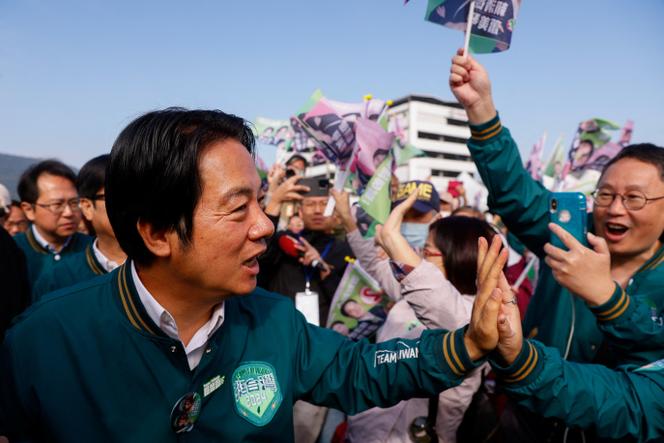


As Taiwan prepares to elect a new president and legislature on January 13, the Republic of China – the sovereign island's other name – is questioning the place that should be given to classical Chinese literature and history in school curricula. When Ou Kui-chih, a teacher at Taipei's prestigious First Girls' High School, publicly described the decrease in the number of studied Chinese texts as a "crime" on December 4, she knew she was rocking the boat.
The education reform may date back to 2019, but the "de-Sinicization" of curricula remains a highly sensitive issue, especially close to an election. Beijing, which considers Taiwan to be one of its provinces, has not failed to exploit the issue. "While the DPP [the Democratic Progressive Party, currently in power] tries to push forward its secessionist scheme, the fact will always remain that Taiwan compatriots are ultimately descendants of the Chinese nation, with Chinese cultural heritage ingrained in their genes," wrote the Chinese daily Global Times on December 12, welcoming Ou's stance.
The Taiwanese Ministry of Education was quick to point out that the teaching of Chinese classics had not been abolished but had simply been reduced, a move that ultimately did nothing to alter the discourse. All three presidential candidates had to speak out on the subject. Lai Ching-te, the current vice president and the candidate for the DPP, who is leading the race, pointed out that the 15 classic Chinese texts still in the curriculum are only a "reference" and that "adjustments" are always possible. His main challenger, Hou Yu-ih, candidate for the Kuomintang, the old nationalist party that advocates a conciliatory policy with Beijing, promised a major national conference on school curricula. The third candidate, Ko Wen-je, chairman of the Taiwan People's Party, declared his opposition to de-Sinicization.
The teaching of history has been a sensitive issue since Taiwan's democratization in the 1990s. In 2015, students protested against a reform carried out behind closed doors by the Kuomintang, the party in power at the time, which they considered too close to Beijing. One of them even took his own life. Elected in 2016, President Tsai Ing-wen (DPP), who adopted a firmer line against Beijing, took three years to reform education.
The overall reform places less emphasis on compulsory teaching and more on options chosen by students, while placing Taiwan in a perspective other than a Chinese one. "The history of China continues to be studied, including through its literary classics, but it has become a historical object. We no longer say it's the history of our country. The history of Taiwan is inseparable from that of East Asia and cannot be seen solely from a Chinese perspective," explained sociologist Mau-kuei Chang, one of the academics who spearheaded the reform. For him, the reform is, above all, pragmatic. "The strategy of simplifying what is old and putting more emphasis on contemporary history inevitably means reducing the content that relates to Chinese history," he said.
You have 20% of this article left to read. The rest is for subscribers only.
